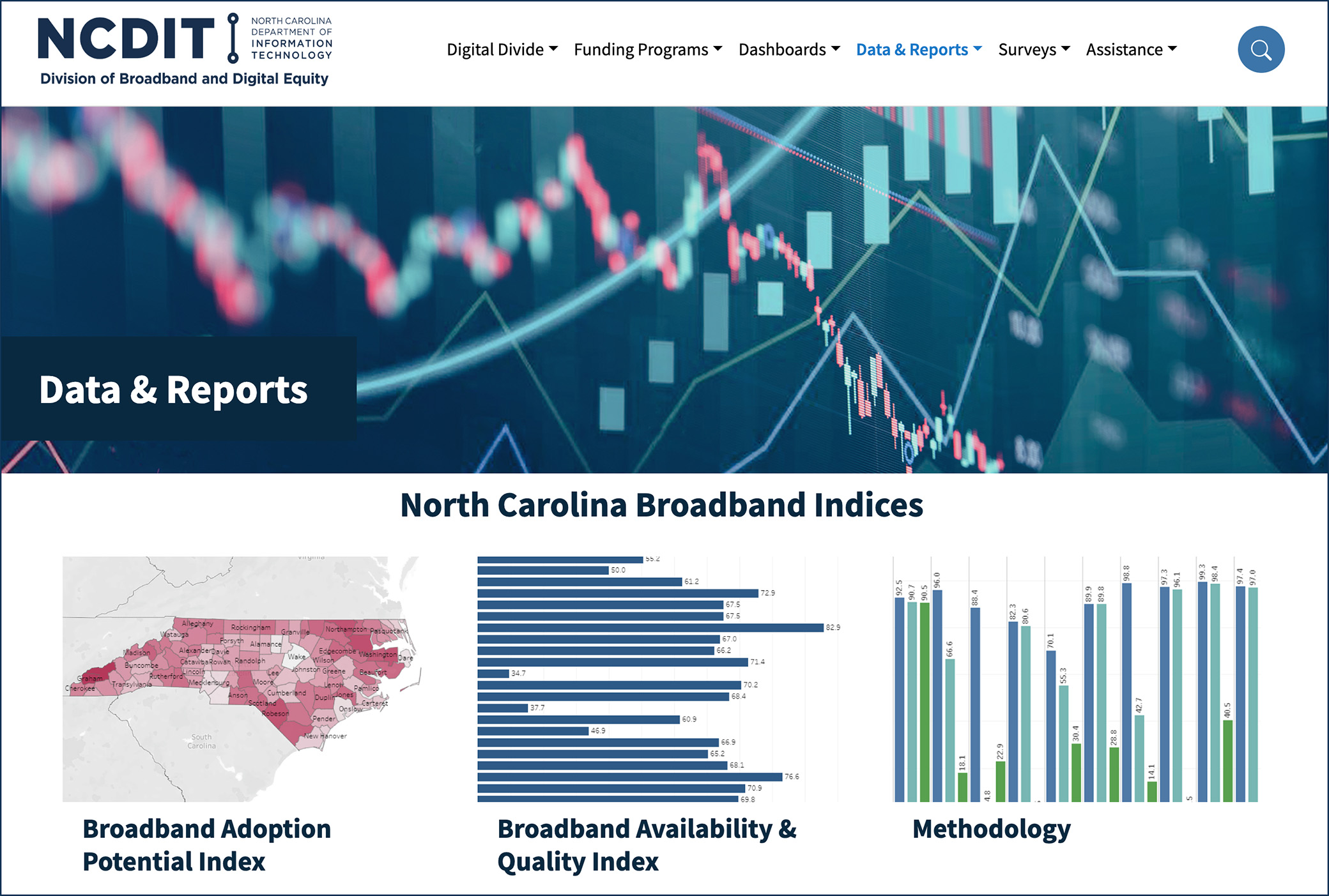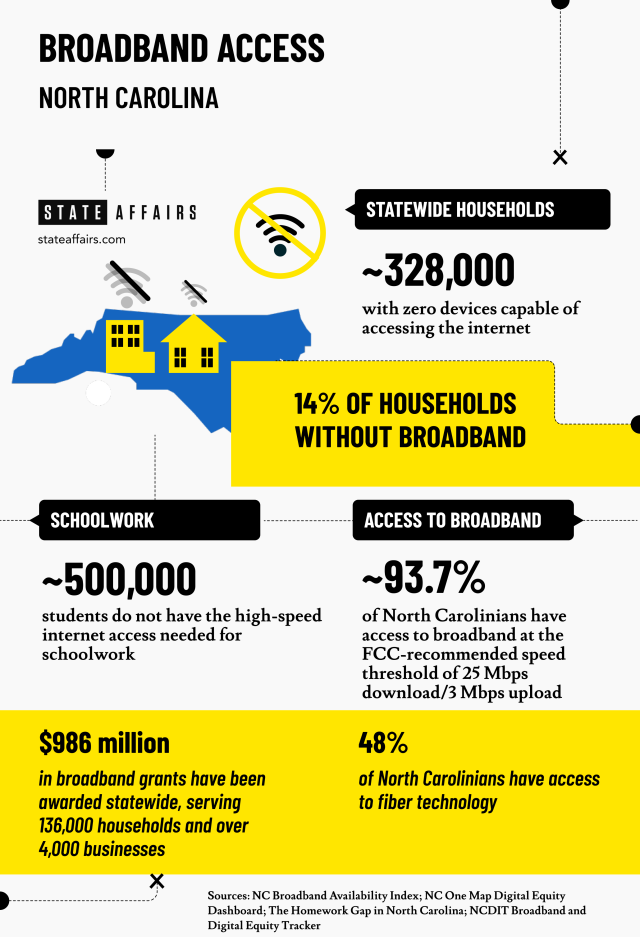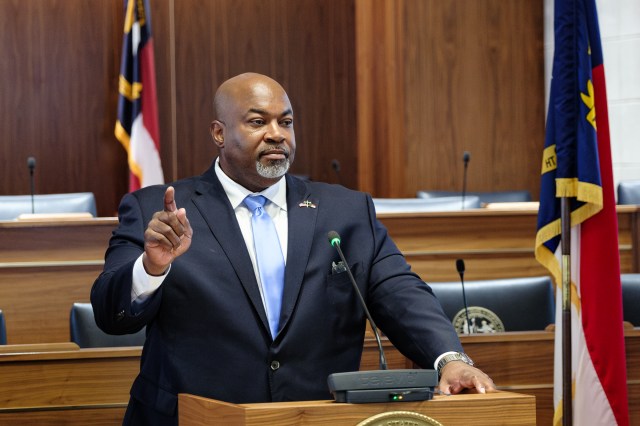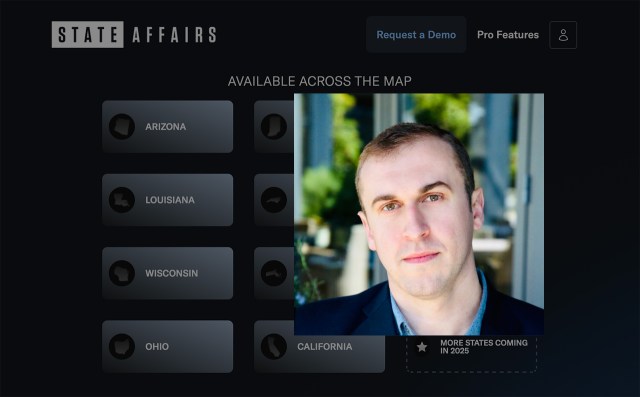Stay ahead of the curve as a political insider with deep policy analysis, daily briefings and policy-shaping tools.
Request a DemoProcess to determine BEAD eligible locations across North Carolina opens Sept. 3

- North Carolina will receive $1.5 billion in broadband grants
- Process to determine eligible locations for funding launches in September
- Statewide digital equity inventory database is set to open in October
North Carolina’s Broadband, Equity, Access and Deployment (BEAD) program will launch a challenge process to determine locations that are eligible for BEAD funding on Sept. 3.
Local governments, tribal governments, nonprofit organizations and broadband service providers can issue challenges based on the most recent data reported by the Federal Communications Commission in December 2023.

North Carolina has 236,000 unserved and 150,000 underserved locations in need of broadband access. The state is set to receive $1.5 billion from the federal government for broadband deployment.
“It’s really important to us that we have the most accurate data possible,” Emily Gangi, policy director for the Division of Broadband and Digital Equity for the North Carolina Department of Information Technology, said during a quarterly BEAD update on Tuesday. “This is a way for eligible challengers and stakeholders to submit challenges to the mapping data that is available and help us make sure that we have the best maps possible.”
A rebuttal phase will open Oct. 15 through Nov. 14 for the submitted challenges. The Department of Information Technology will conduct a final determination phase from November to December, during which the department will sustain or reject all received challenges and rebuttals and submit the data to the National Telecommunications and Information Administration.
The pre-qualification process portal for internet service providers that wish to bid on BEAD-funded projects will also open in September, according to Gangi.
“We feel confident, based on the $1.5 billion that North Carolina is going to receive from BEAD funding, that we’ll be able to achieve both of those two primary goals],” Gangi said of providing access to the unserved and underserved areas.
A third aim of the funding will allocate money to community anchor institutions where people access the internet, such as schools, libraries and health care centers. The Department of Information Technology has compiled a list of 10,000 organizations that meet that criteria.
The state submitted a BEAD five-year strategic plan to the National Telecommunications and Information Administration last year, and it was approved in August 2023. “By 2025, North Carolina plans to become a national leader, ranking in the top five states for high-speed internet adoption,” the plan states.
Maggie Woods, deputy director of the Office of Digital Equity and Literacy, said the Department of Information Technology has developed a “robust” database compiling all the state’s resources, programs and projects focused on digital inclusion, such as public computer labs or sites that offer digital literacy training.
“We hope that it’s a way to be able to connect with programs and resources within your own community,” Woods said. “We’ve heard over and over again that people don’t know what’s happening within their own counties and they want to connect with folks.”
The interactive database is expected to be released in October.
For questions or comments, or to pass along story ideas, please write to Matthew Sasser at [email protected] or contact the NC Insider at [email protected] or @StateAffairsNC
Know the most important news affecting North-carolina
Get our free weekly newsletter that covers government, policy and politics that impact your everyday life—in 5 minutes or less.
Robinson campaign on defense following CNN report
The political day in Raleigh Thursday was dominated by news and speculation surrounding the gubernatorial campaign of Lt. Gov. Mark Robinson, who addressed the issue of a potential withdrawal from the race in a defiant video release on the social media platform X. “We are staying in this race. We are in it to win …
Swing state scramble: Vance rallies Raleigh
North Carolinians would fare better economically under a second Trump administration than they have under President Joe Biden and Vice President Kamala Harris, GOP vice presidential nominee JD Vance said Wednesday during a rally at Raleigh’s Union Station. Vance acknowledged that he is a former critic of former President Donald Trump and said it would …
New Hire
Cody Hill, a name familiar to many in North Carolina’s government affairs community, joins the State Affairs team today to help manage sales and strategic partnerships in North Carolina and the Southeast. For the past four years, Hill worked as head of partnerships at UpState, a North Carolina legislative tracking service based in Durham. He …
Robinson campaign touches down in ‘Mayberry’
Any conservative politician hoping to evoke a simpler time and place where small-town values prevailed could do worse than Mayberry. And as Republican gubernatorial candidate Lt. Gov. Mark Robinson worked his way from table to table Wednesday night at a restaurant on Mount Airy’s Andy Griffith Parkway, there were plenty of friendly hugs, laughter and …




